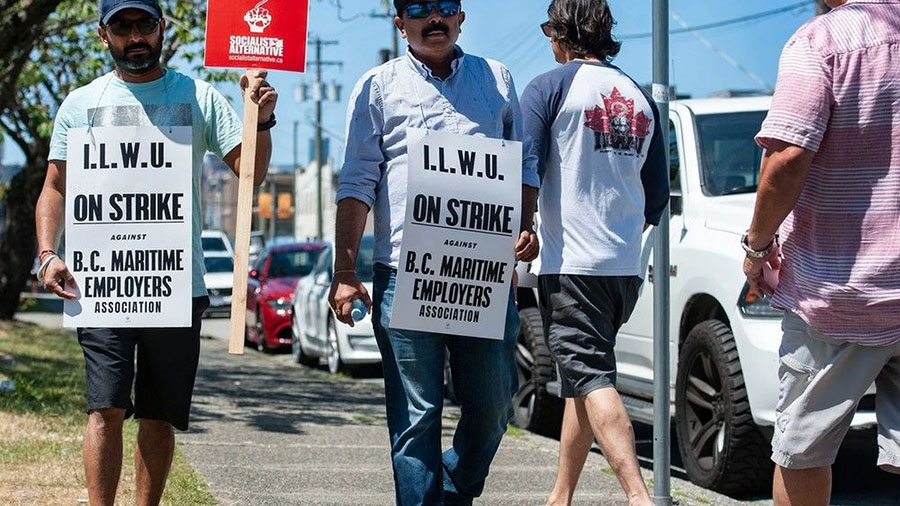Canada’s west coast ports’ dockworkers’ union voted against the federal mediator’s “recommended terms of settlement” for the contested collective bargaining agreement, threatening to again shut down British Columbia’s ports.
Over 7,000 members of the ILWU Canada were on strike for 13 days before calling off the action on July 16 to consider the tentative agreement. The rejection of the brokered deal was a surprise as both the ILWU and BCMEA endorsed the compromise proposed by federal mediators.
In an increasingly complex situation, the International Longshore & Warehouse Union (ILWU Canada) revoked a 72-hour strike notice that alerted maritime employers of a work stoppage at the country’s British Columbia ports on July 22. It gave no reasons or details behind the decision.
The rescinding of the strike resumption came as Prime Minister Justin Trudeau directed a crisis meeting to pursue all options to ensure the stability of supply chains as he stressed the critical role of port operations.
The news of the revoke, made public on Wednesday evening, follows a turbulent 24-hours for Canada’s West Coast port labor negotiations.
The union initially relaunched its strike on Tuesday after announcing its caucus had rejected a tentative deal reached last week, but removed picket lines and returned to work after the Canadian Industrial Relations Board ruled the workers needed to give 72-hour notice for the strike to be legal.
Employers represented by the BC Maritime Employers Association (BCMEA) also complained to the industrial relations board that the strike required a 72-hour notice.
“The past 24 hours have demonstrated that this continues to be a fluid and unpredictable situation,” the BCMEA said in a statement after the union revoked its strike notice. “We will communicate as appropriate with key stakeholders as we receive clarification.”
Amid mounting calls for resolute government action to end the strike, Trudeau on Wednesday convened a meeting of the Incident Response Group, comprised of senior officials and ministers and meets only in crisis cases. In a statement released following the meeting, the Prime Minister’s Office said Trudeau had stressed the critical importance of operations at the ports resuming as soon as possible and said that workers and employers across Canada could not face further disruptions.
“The Prime Minister stressed the critical importance of resuming operations in our ports as soon as possible. Workers and employers across Canada—and all Canadians—cannot face further disruption,” the statement added.
In rejecting the proposal late Tuesday, ILWU Canada President Rob Ashton stated, “The ILWU Canada Longshore Caucus does not believe the recommendations could protect our jobs now or into the future.”
He added, “Our workers have been facing cost-of-living issues over the past couple of years, and despite the record profits earned by the member companies of the British Columbia Maritime Employers Association, they have not taken any steps to address these concerns.”
The standoff between the union and employers over job protection, cost-of-living adjustments and union jurisdiction remains unresolved.
The strike originally started on July 1 and ran for 13 days, shutting down or severely disrupting operations at the more than 30 B.C. port terminals and other sites where union members work — including Vancouver, the country’s largest port.
The 13-day strike impacted billions of dollars worth of goods, and the BCMEA estimated it impacted C$7.5 billion ($5.5bn) in cargo during the first ten days. Canadian Manufacturers and Exporters (CME) estimated previously that goods worth C$500 million a day were being disrupted, accounting for some 16 percent of Canada’s total goods.
Photo courtesy PNG
















